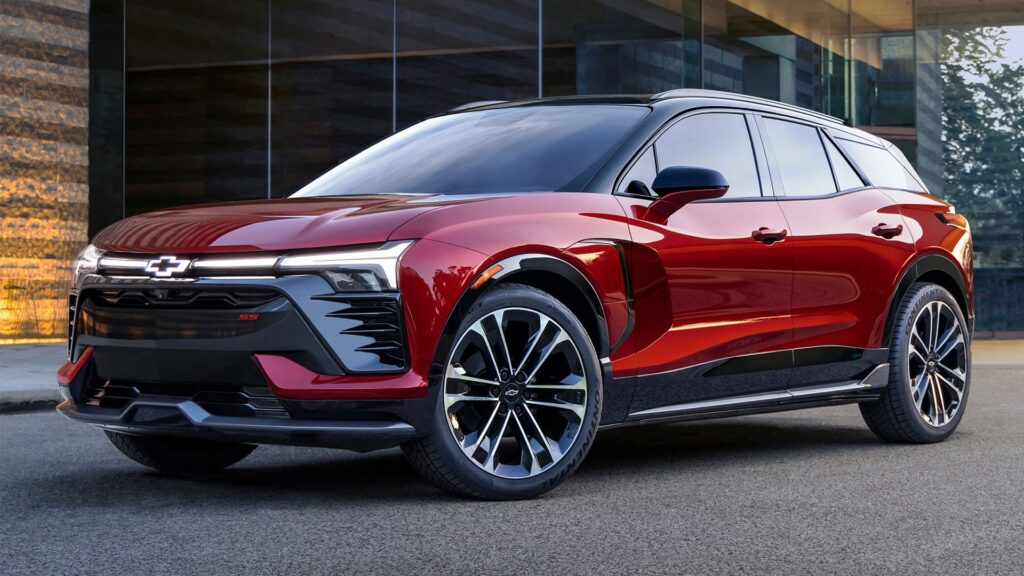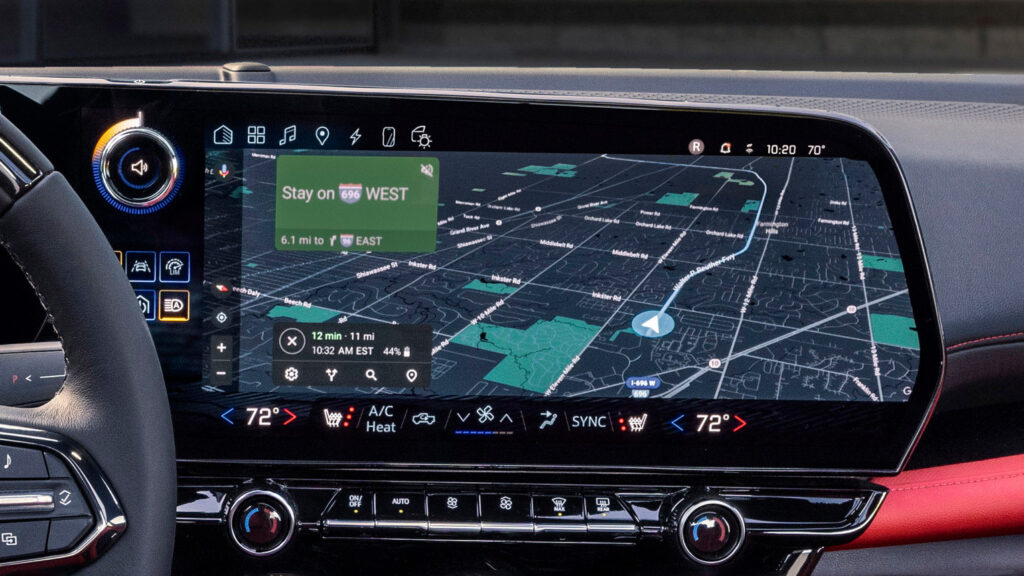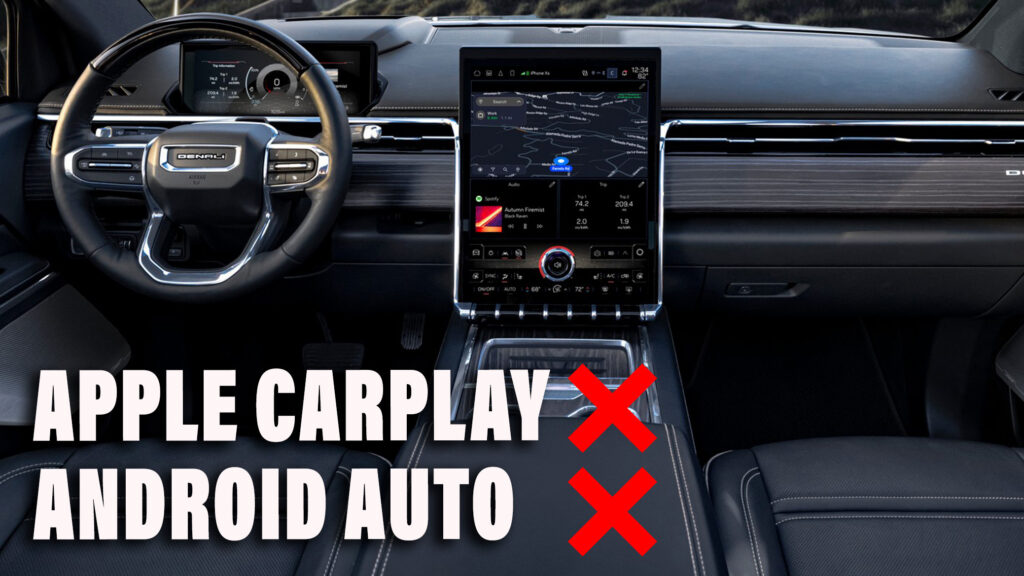Automakers sometimes make bold decisions that seem crazy at the time, but with hindsight can be seen as smart moves we can all applaud. Honda’s decision to strap a turbo to the Civic Type R seemed like a terrible idea until we drove the FK2 and experienced its 50 percent power hike over the older FN2. And the configurable all-wheel drive in BMW’s M3 xDrive made the world’s greatest daily even better for many drivers.
But how will we look back on GM’s decision to ditch Apple CarPlay and Android Auto five years down the line? The automaker recently confirmed it had developed its own media system for its new generation of EVs, including the 2024 Chevrolet Blazer, which won’t feature either of the well known smartphone adaptations, although they will be compatible with smartphones.
Given that as much as 80 percent of new car buyers demand CarPlay connectivity in their new vehicles, that seems like a crazy move, but GM is sticking to its guns, convinced that it’s making the right move. Scott Miller, vice president of software defined vehicle and operating systems at GM told The Verge that while he thinks the two big phone projection systems have improved the infotainment experience for many, they’re in reality only “good” and General Motors is shooting for something much better.
Related: GM Phasing Out Apple CarPlay And Android Auto From Its Vehicles

Miller believes that people are creatures of habit, but that they will be won over by a better experience that doesn’t require you to pair your phone via Bluetooth to connect it to the car.
“We do have customer data that says when system is embedded and it just works and you don’t have to fumble with your phone or pair it or do other things with it, you get in your vehicle and everything works seamlessly,” he told The Verge. “It knows you, it recognizes you and sets it up for you. They will like that better.”
But GM isn’t making this switch purely out of some wish to make the user experience better. By developing its own infotainment system it will also be able to collect and analyze far more data about how its EVs are being driven and charged, and it will be able to make a ton of money by persuading drivers to sign up for subscriptions for services they already get free on their phones.
Anyone buying a next-generation GM EV will get the use of Google Maps and the company’s Google Assistant voice command system free for eight years, and will be able to make phone calls without paying extra, but other apps like Spotify and Audible will require a subscription. The company’s combustion cars, however, will continue to be offered with Apple CarPlay and Android Auto.





